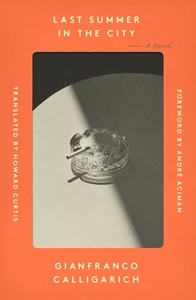Take a photo of a barcode or cover
Not sure if it’s a poor translation, or bad writing on the part of Calligarich, but if I ever see the phrase “I was at the end of my tether, truth be told” again, it will be too soon. The characters are awful, which made the supposed depth of feeling between Gavarro and Arianna totally unbelievable, the writing is flat and at times bizarrely repetitive. Page 38 for example: “I really wondered who she was running away from, because there was no doubt about it, she was trying to get the hell out, to escape. I wondered who from.” Page 102: “Why didn’t she drop it, she knew perfectly well what had happened. ‘Drop it,’ I said, ‘you know perfectly well what happened.” Arrgghhh! Not one I would recommend.
"Me di cuenta de que era el lugar más hermoso que había visto y de que no estaba yendo a ninguna parte, de que no había ningún lugar adonde pudiera ir que no fuera ese".
Novela triste y dolorosa que continuamente rompe tus expectativas y te desmonta en el proceso. El final de una época y de una generación. Cuando todo acabe, solo Roma aguantará en pie.
Novela triste y dolorosa que continuamente rompe tus expectativas y te desmonta en el proceso. El final de una época y de una generación. Cuando todo acabe, solo Roma aguantará en pie.
Spoiler
This will absolutely be a reread at some point. Most likely when I am tired of living in New York and wish to be anywhere but there.Finished this in two days as I sat and tanned on my parents back patio (felt fitting) and while parts left me unsatisfied, the power of Gianfranco Calligarich’s writing is not something to deny.
My personal favorite quote: “But it’s always like that, we are what we are not because of the people we’ve met but because of those we’ve left.”
There’s no doubt that Leo Gazarra is incredible depressed throughout the entirety of the novel. Loneliness is brutal. But as depressing as the final few chapters were, it only felt fitting to end it as Calligarich did, calling back to the grandfather’s love of the ocean.
If I could give it a 3.5 I would and I will for sure give this a reread at some point in the future.
dark
reflective
sad
slow-paced
Plot or Character Driven:
Character
Strong character development:
Complicated
Loveable characters:
No
Diverse cast of characters:
No
Flaws of characters a main focus:
Yes
adventurous
reflective
medium-paced
Plot or Character Driven:
Character
Strong character development:
No
Loveable characters:
Complicated
Diverse cast of characters:
Complicated
Flaws of characters a main focus:
Yes
No tears for the creatures of the night
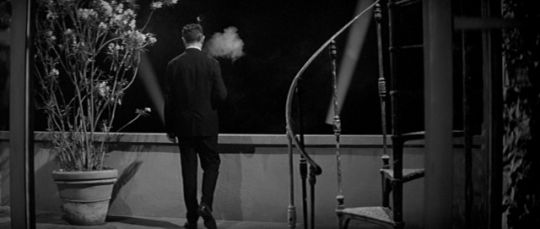
How did old Cavafy put it? The city will come with you, he said, to somewhere else, he said, there is no hope, there is no ship, there is no way for you, because by throwing your life away in this insignificant corner, you have thrown it away on the whole earth.(*)
Leo Garazza, a feckless 30 year old man from Milan gets shipwrecked in the eternal city, living his bohemian life from hand-to-mouth, lost and drifting through the city through various jobs, bars, scrounging food and drink from more wealthy friends, having a half-hearted and stormy affair with Arianna, a young woman ever on the verge of a nervous breakdown. Last Summer in the city is told with a heedless flair, replete with literary allusions (particularly to writers who like Leo also had issues with the bottle (Lowry, Hemingway, Dylan Thomas); Proust and madeleines are a leitmotif as well) – and with lyrical reflections for instance when Leo perches on the piazza Navona In the middle of the deserted square, the fountain shone against a deep blue background. Magnificent, the square at that time, as if aware of its own beauty and pointless existence.
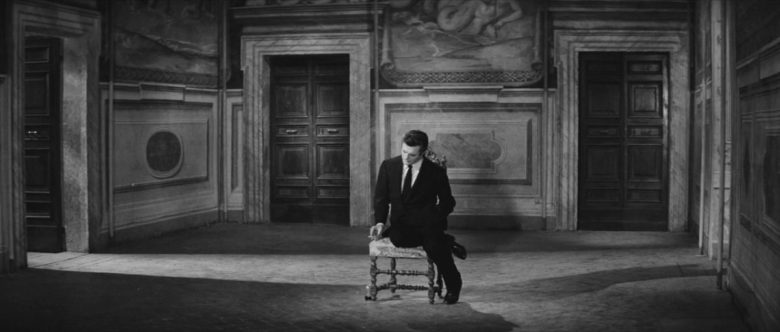
First published in 1973 and now hailed as a classic of Italian literature, Last Summer in the City, struck me as fairly banal and slightly soporific despite its alluringly light (even misleadingly sprightly), ironic and wry tone and its cinematic qualities (reminding me of Fellini’s La dolce Vita). Admittedly, Calligarich’s beautifully crafted sentences flow beautifully and his depiction of the variegated sides of (night) life in Rome in the 70s – ranging from dark and shady to bright and seductive – is fascinating, but apart from the old Graziano, none of the characters who stroll through this novel piqued my curiosity –a few of them having an attitude toward life echoing the careless superficiality and amorality of Daisy and Tom Buchanan in Fitzgerald’s The Great Gatsby so patently that Calligarich seems to have them abducted from New York and transplanted to Rome: That is how they were. They took everything lightly. They were light-hearted and self-assured. They would crush people with a remark and happily move on to the first easy chair within reach..
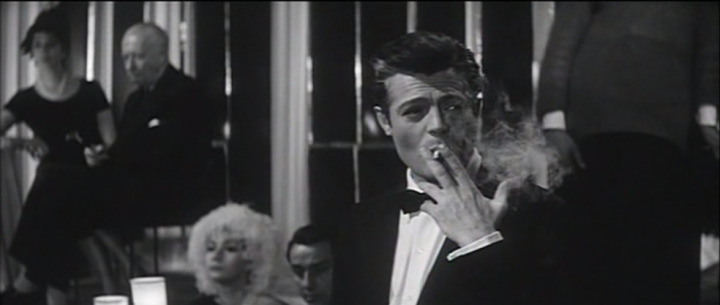
Rome might be the most intriguing character featuring in the book - indomitable, indifferent and unwelcoming; the way the city affects the protagonist is the central subject of the novel (or as Natalia Ginzburg worded it in her immaculate lucidity: 'The true quality of this novel is the way it enlightens, with a desperate clarity, a relationship between a man and a city--that is, between crowd and loneliness.').
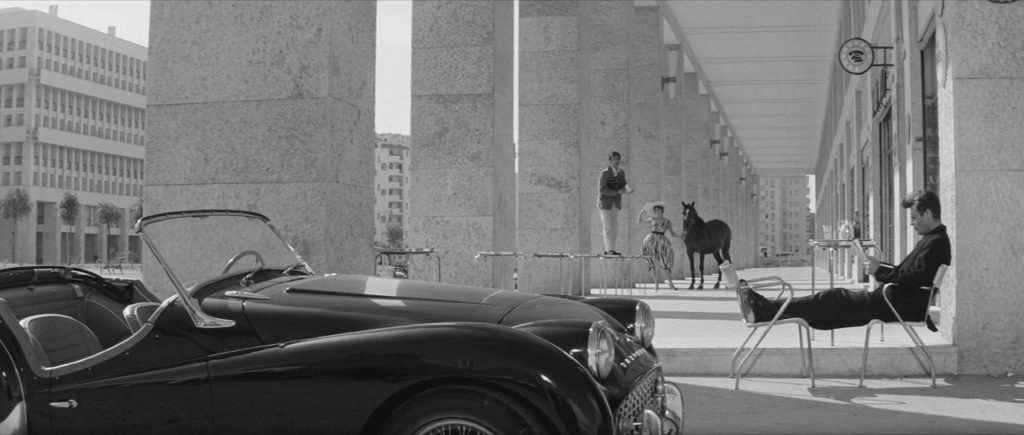
Even if Leo Garazza’s struggles and disquiet left me quite distant, the closing scene brought a lump to my throat, poignant it was in its scenic evocation of despair, echoing Alberto Moravia’s [b:Contempt|67141|Contempt|Alberto Moravia|https://i.gr-assets.com/images/S/compressed.photo.goodreads.com/books/1617039834l/67141._SY75_.jpg|2257072] and – again – the finale of The Great Gatsby.
(*I machine-translated the quotes from the Dutch edition, an English edition of Last Summer in the City will be published in August).

How did old Cavafy put it? The city will come with you, he said, to somewhere else, he said, there is no hope, there is no ship, there is no way for you, because by throwing your life away in this insignificant corner, you have thrown it away on the whole earth.(*)
Leo Garazza, a feckless 30 year old man from Milan gets shipwrecked in the eternal city, living his bohemian life from hand-to-mouth, lost and drifting through the city through various jobs, bars, scrounging food and drink from more wealthy friends, having a half-hearted and stormy affair with Arianna, a young woman ever on the verge of a nervous breakdown. Last Summer in the city is told with a heedless flair, replete with literary allusions (particularly to writers who like Leo also had issues with the bottle (Lowry, Hemingway, Dylan Thomas); Proust and madeleines are a leitmotif as well) – and with lyrical reflections for instance when Leo perches on the piazza Navona In the middle of the deserted square, the fountain shone against a deep blue background. Magnificent, the square at that time, as if aware of its own beauty and pointless existence.

First published in 1973 and now hailed as a classic of Italian literature, Last Summer in the City, struck me as fairly banal and slightly soporific despite its alluringly light (even misleadingly sprightly), ironic and wry tone and its cinematic qualities (reminding me of Fellini’s La dolce Vita). Admittedly, Calligarich’s beautifully crafted sentences flow beautifully and his depiction of the variegated sides of (night) life in Rome in the 70s – ranging from dark and shady to bright and seductive – is fascinating, but apart from the old Graziano, none of the characters who stroll through this novel piqued my curiosity –a few of them having an attitude toward life echoing the careless superficiality and amorality of Daisy and Tom Buchanan in Fitzgerald’s The Great Gatsby so patently that Calligarich seems to have them abducted from New York and transplanted to Rome: That is how they were. They took everything lightly. They were light-hearted and self-assured. They would crush people with a remark and happily move on to the first easy chair within reach..

Rome might be the most intriguing character featuring in the book - indomitable, indifferent and unwelcoming; the way the city affects the protagonist is the central subject of the novel (or as Natalia Ginzburg worded it in her immaculate lucidity: 'The true quality of this novel is the way it enlightens, with a desperate clarity, a relationship between a man and a city--that is, between crowd and loneliness.').

Even if Leo Garazza’s struggles and disquiet left me quite distant, the closing scene brought a lump to my throat, poignant it was in its scenic evocation of despair, echoing Alberto Moravia’s [b:Contempt|67141|Contempt|Alberto Moravia|https://i.gr-assets.com/images/S/compressed.photo.goodreads.com/books/1617039834l/67141._SY75_.jpg|2257072] and – again – the finale of The Great Gatsby.
(*I machine-translated the quotes from the Dutch edition, an English edition of Last Summer in the City will be published in August).
Indulgent jibber jabber bla blah blah ooooh isn’t life just funny! Get over it mate
dark
emotional
funny
reflective
sad
slow-paced
Plot or Character Driven:
Character
Strong character development:
Complicated
Loveable characters:
Complicated
Diverse cast of characters:
No
Flaws of characters a main focus:
Yes
dark
emotional
funny
reflective
sad
medium-paced
Flaws of characters a main focus:
Yes
"There was a different tone to her voice, but I recognized it. I would have recognized it among a thousand voices, after a thousand years, in whatever world I found myself."
